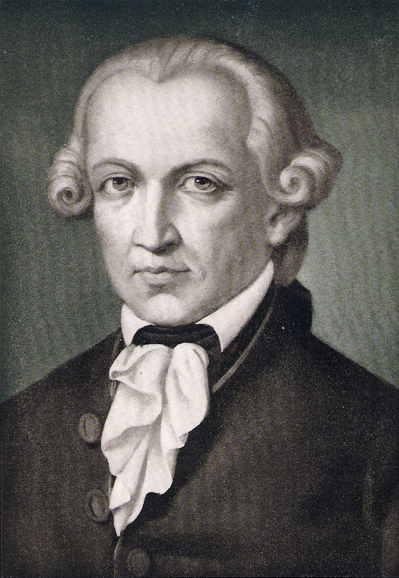
Here, Immanuel Kant writes to German author Heinrich Jung-Stilling, responding to his interest in Critique of Pure Reason. Kant lays down guidelines for lawmaking within a civil society and formulates his categories of freedom.
[After March 1, 1789]
Your interest in every investigation into the vocation of man does honor to you, dear sir; it stands in contrast to the attitude of the majority of speculative minds, whose interests are motivated only by partisanship or vanity. And it is quite right of you to seek in the Gospels the final satisfaction of your striving for a secure foundation of wisdom and hope, since that book is an everlasting guide to true wisdom, one that not only agrees with a Reason which has completed her speculations but also sheds new light on the whole field surveyed by that reason, illuminating what still remains opaque to it.
That the Critique of [Pure] Reason has been useful to you in this quest must be owing not to me but to your own keen mind, which manages to draw something of value out of even an imperfect work. But I was quite surprised that the system of categories, which must indeed be the a priori foundation for any classification of the principles of scientific knowledge based on concepts, would be the place you would look for help in setting up a system of civil law. I think that here, too, you are not mistaken.
The principles that you suggest as foundational for a system of legislation cannot serve that purpose properly, since they are valid also as precepts for human beings in the state of nature, even the third of your principles, “Be a member of civil society.” One might raise the question how laws should be given in a civil society that is already presupposed; and in that case, I think one might say, following the order of the categories:
(1) as regards quantity, the laws must be of such a nature that one [citizen] might have decreed them for all, and all for one;
(2) as regards quality, it is not the citizen’s purpose that the laws must decide, for all citizens may be allowed to pursue their own happiness in conformity with their own inclination and power; but laws concern only the freedom of every person and the forcible limitation on that freedom imposed by the condition that each person’s freedom must be compatible with that of every other person;
(3) as regards the category of relation, it is not those of the citizen’s actions that relate to that person or to God that are to be condemned but only those external actions that restrict the freedom of a person’s fellow citizens;
(4) as for modality, the laws (qua coercive) must not be given as arbitrary and accidental commandments required for the sake of some purposes that happen to be desired; they must be given only insofar as they are necessary for the achievement of universal freedom.
But the general problem of civil union is this: To unite freedom with a coercion that is yet consistent with universal freedom and its preservation. In this manner there arises a state of external justice (status iustitiae externae) whereby that which was only an Idea in the state of nature (namely, the notion of law as the mere entitlement to coerce) is actualized.
Around the end of this summer I shall begin to work on my “Metaphysics of Morals,” and by next Easter I should be finished with it. In it the a priori principles for any civil constitution in general will also be discussed.
In view of the integrity of your thinking and the lively concern for all that is good that I perceive in your letters to me, I am sure that the peace of mind with which, not without justification, you are pleased to credit me, in the evening of my life, will brighten the days of your own life, and may there be many of them still to be lived through.
With respect and friendship, I am
Your most devoted servant,
I. Kant
From Correspondence. Kant, Immanuel, and Arnulf Zweig. Cambridge; New York: Cambridge University Press, 1999.


